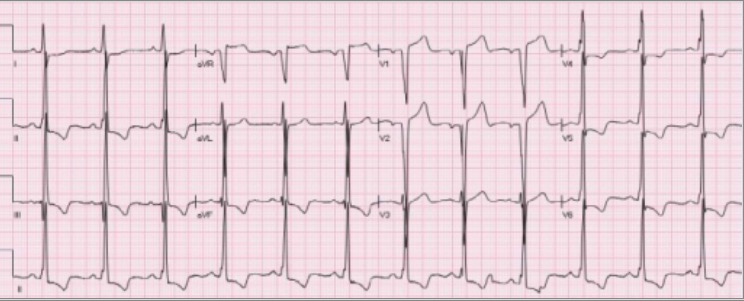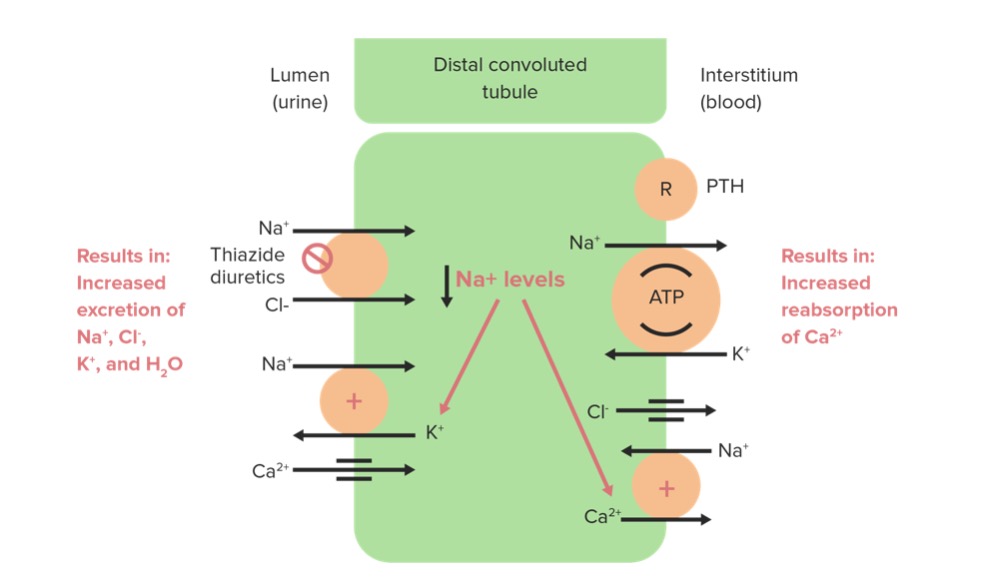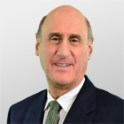Playlist
Show Playlist
Hide Playlist
Therapy – Hypertension
-
Slides 07 Cardiology Alpert EN.pdf
-
Reference List Cardiology.pdf
-
Download Lecture Overview
00:01 Well, at that time, there were many drugs or interventions that were thought to help high blood pressure. Turns out, not one of them really worked. Had they worked, President Roosevelt might have lived another 20 years. We have many effective drugs today. The next two slides, you’ll see a long list of all of the drugs that have been proven to be effective for controlling high blood pressure and of course, I don’t expect you to memorize these, even I don’t… think about most of these drugs. What happens is, most physicians, most cardiologists learn to use one or two drugs in each of the classes that we’re going to talk about in this lecture. Understanding that there are other drugs with similar effects in those classes, but that you don’t need to use because the result of using any one or two is the same as using the others. And doctors will vary in their propensity to decide, “Oh this is my favorite Beta Blocker,” for example, or “This is my favorite ACE inhibitor,” and we’ll talk about that as we talk about each of these drugs. And here’s a continuation of that list. 01:11 Lots and lots and lots of drugs have been shown to be effective in controlling high blood pressure. Now, there’s a lot of public health data in the United States about high blood pressure. As you can see here, in this slide, on the left hand side, about a third of the population have high blood pressure and when comparing two eras, an earlier era in the 90’s to an era in the 21st century, you can see that the incidence of hypertension has increased by a tiny amount. And in the second slide, you’ll see that about 60 plus percent of patients are actually being treated and actually, the white slide… the white bar there shows you that, in fact, we're treating more patients, which is good. 01:57 How are we treating more patients? There are widespread screening attempts. People set up booths, often sponsored by the American Heart Association in parking lots of supermarkets and offer to do free blood pressure checks on anybody who wants to come and get checked. 02:13 And if their blood pressure is high, the recommendation is, “Why don’t you tell your doctor about that? We’re going to write down the blood pressure we recorded here and we’d like you to tell your doctor and talk about treatment.” Unfortunately, even though a lot of people are being treated, as you can see in the third bar, actual good control of the blood pressure is really only about 40 to 50% of patients. It’s better than it was back in the 90’s, but still has long way to go. We would like to see 80 to 90% of people with hypertension identified and 80 to 90% of them well controlled. But, we got a long way to go to do that. 02:49 So, you can see from the information that we’ve just talked about. There are still a lot of patients in the United States with hypertension who are not identified and unfortunately, even many of the patients that are identified are not being treated adequately. So, the question remains, what approaches can we use to improve detection and control of hypertension? Can we find high risk patients? People who are likely to have a bad outcome if their hypertension isn’t treated and can we get them on effective treatment? We also identify patients who are very high risk for nasty events like stroke who are hypertensive and those are the people we really try and push as hard as we can to get treatment. 03:28 So, for example, it turns out that if you have high blood pressure in the community test, just when you’re… let’s say coming to the supermarket, you sit down, you have your blood pressure taken. If it’s already elevated, you’re already high risk for problems down the road. Of course, older aged individuals with high blood pressure are at higher risk for bad things happening, patients who are obese, who are markedly overweight, patients who have too much salt in their diet. In general, the average American diet contains way too much salt and that’s often the case in Western European diets as well. And of course, patients that have kidney disease often have severe problems with high blood pressure. Diabetics have more problems with high blood pressure than non-diabetics. If your heart is thickened, if the left ventricle is hypertrophied or thickened, that’s a higher risk situation. 04:25 It turns out, older women have more hypertension than older men. So, there’s another risk factor and it turns out that probably because of diet and a number of other factors, residents in the Southeastern United States are at higher risk of developing high blood pressure and stroke. We call that area of the United States the stroke belt because there are a lot of patients with hypertensive strokes.. 04:49 African Americans, American Indians, Alaska Natives, Asian Pacific Islanders, and Hispanics suffer more from heart disease than their share of the population would suggest that people with low income and those living in rural areas also face more challenges with hypertension and cardiovascular disease, including less access to quality care. 05:10 When we look at race as an actual or potential risk factor, it's important to separate inequities and genetics as contributing factors. 05:18 Salt sensitivity. 05:20 Hypertension is a potential ancestry related contributing factor to the hypertension risk mentioned here, and future research may permit the better targeting of treatment by sorting out the ancestral, epigenetic, and social contributing factors. 05:31 Where ancestral risk factors are suspected, genetic testing may provide a more accurate assessment of individual risk. 05:37 For example, the T variant of the K1 gene with regard to salt sensitivity. 05:42 Awareness of these complexities will help us be better care providers to individual patients, and also allows us to contribute to inequity reductions more easily, whether through research in our care delivery or through public health efforts. 05:54 So, again, what are the lifestyle changes that contribute to hypertension? Well, I think you probably have already guessed them. Let’s start, obesity. Blood pressure is directly related to weight. The fatter you are, the higher will be your blood pressure. High salt intake, I’ve already mentioned that. Many people don’t even taste their food before they, what I call put a snow storm on, onto the food with a heavy salt load that raises your blood pressure. Inactivity, failure to exercise regularly, ingestion of high fat, high… predictably high saturated fat foods and high alcohol content, all increase blood pressure. 06:38 So, what can you do about it? Of course, you can start an exercise program, you can start trying to eat more healthy food and you can drop your weight. You can cut back on salt intake. Again, you can start doing a walking program or some other form of regular exercise together with diet that helps with weight loss. You can change what you’re eating to healthier selections and you can make your alcohol intake more modest and perhaps, if you drink because you’re stressed, you can work on a stress reduction program. All of these lifestyle changes are important in the regulation of high blood pressure. 07:19 Now, it turns out that there are a number of substances that are easily bought and at least in the US, without a prescription that can increase blood pressure. So, for example, prescribed anti-depressant drugs can raise blood pressure. It turns out that over-the-counter drugs people take from the health food store, for example, ginseng, can raise your blood pressure. And of course, certain anti-cancer drugs raise your blood pressure and as we just mentioned, alcohol raises your blood pressure. 07:53 So, there are a number of things that you take for perhaps appropriate reasons, but we need to monitor your blood pressure to make sure you’re not getting that adverse effect from these drugs. So, having heard this, we have a little quiz. 08:12 Are there lifestyle changes that should be made by patients with hypertension who have been started on medication to control the blood pressure? In other words, should there be lifestyle changes in addition to the drugs? Yes or no? And the answer is of course, yes. 08:28 All the things we talked about before, weight control, regular exercise, decrease in salt intake, decrease in heavy alcohol intake, there’s a whole variety of lifestyle things that we talked about. If you’re a person with a lot of anxiety, mind body programs help. There are, and as we talked about, modest alcohol intake. All of these things in combination with the drugs usually results in excellent control of the blood pressure, even in people who have fairly severe high blood pressure. Well, let’s now talk about the drugs that help to keep people’s blood pressure down below the magic number that we always shoot for is less than 130/80. Now, what I usually tell my patients is to buy one of these simple automatic blood pressure cuffs and once or twice a week, sit quietly for a few minutes and record their baseline blood pressure. What we’re shooting for is a home blood pressure that’s less than 130/80. I usually ask them to write it down and when I see them in the office then after several months, I can sort of see, are most of the time, are they in fact under 130/80 or are there lots of 150’s and 160’s being recorded? If I see a lot of 150’s and 160’s, clearly the patients need a change in their medical program.
About the Lecture
The lecture Therapy – Hypertension by Joseph Alpert, MD is from the course Cardiac Diseases.
Included Quiz Questions
Which of the following lifestyle modifications is not recommended for overweight patients with uncomplicated hypertension?
- Reduced proportion of unsaturated to saturated dietary fat
- Weight loss
- Reduced salt intake
- Reduced caloric intake
Which of the following drugs is not used for lowering blood pressure in a hypertensive patient?
- Aspirin
- Propranolol
- Lisinopril
- Losartan
- Nifedipine
Which of the following is not a risk factor for hypertension?
- Caucasian race
- Excessive dietary salt intake
- Obesity
- Older age
- Female gender
Which of the following lifestyle factors is not associated with hypertension?
- Excessive physical activity
- Heavy alcohol intake
- Low-fiber, high-fat diet
- High-salt diet
- Obesity
Which of the following drugs may increase your blood pressure?
- Ginseng
- Opium
- Simvastatin
- Lisinopril
- Esmolol
Customer reviews
5,0 of 5 stars
| 5 Stars |
|
5 |
| 4 Stars |
|
0 |
| 3 Stars |
|
0 |
| 2 Stars |
|
0 |
| 1 Star |
|
0 |





